Harvard Outreach Newsletter
125th Issue, January 2024
In this issue:
- Parental support for students applying to university
- World university rankings 2024
- Which universities are ranked the highest for particular subjects?
- Standardized tests - should I still take them?
- Researching US colleges

Parental support for students applying to university
Parents of students who will be applying to American universities next autumn will no doubt be wondering what kind of support they should be offering their offspring. Students who make successful applications to top US colleges are nearly always self-starters – they are highly motivated individuals who undertake all the necessary research and preparation to put themselves in the best possible position to put together a high quality application. Parental support is an important part of this endeavour – but you must be careful not to take over control of the process. Admissions Officers (AOs) will expect applicants to take the lead when researching different colleges and preparing their applications, as students who are unable or unwilling to take the initiative in this respect are unlikely to have the personal qualities the AOs are looking for. So what exactly is the best role for parents to take in the application process?
Lian Parsons, who works at Harvard’s Division of Continuing Education, has written a useful blog discussing how involved parents should be in their children’s college applications and admissions. It covers the following four areas:
- What role should parents and guardians play in college admissions?
- How to support your child in the process.
- When do parents and guardians become too involved in the college admissions process?
- How do you strike the right balance?
You can read the full article on the Harvard Summer School website.
Other articles about parental involvement:
College Advisor Parental involvement and the college application process
Going Merry 22 ways parents can help (and hurt) the college application process
New Frontiers How parents can support their kids through college applications
World University Rankings 2024
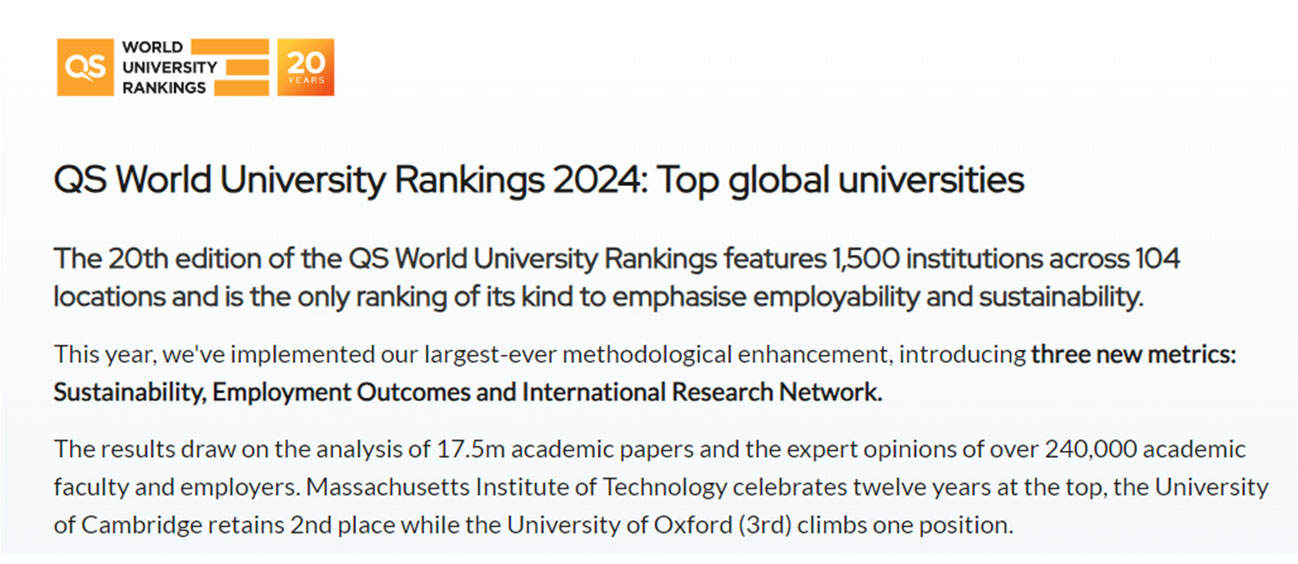
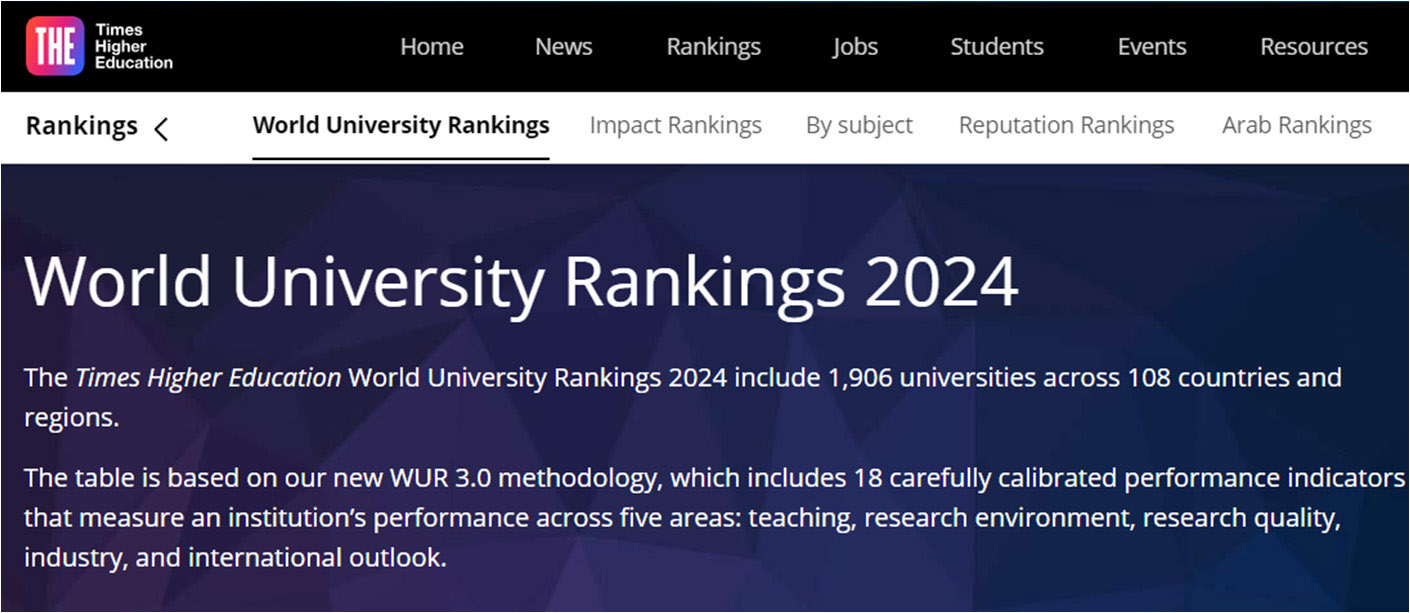
At US College Fairs we are sometimes asked: ‘Is there a US equivalent to the Russell Group universities in the UK?’ The short answer is ‘no’, but if you want a rough comparison between the Russell Group (the top 24 UK research universities) and other world universities, then you should find out where they sit in the world university rankings.
Universities that appear in the same area of the tables are likely to be of a similar calibre – but you should be cautious about reading too much into this, because (1) the organisations that produce world rankings use different assessment criteria, so the ranking of a particular university can vary wildly between different tables; and (2) there are many other criteria besides world ranking (see article below on ‘Researching US Colleges’) that you should use to determine which colleges make it to your shortlist.
When carrying out your research, you should always remember that there is a right and wrong question to ask yourself when you are searching for suitable universities to which you might apply.
- The wrong question is: which are the best universities?
- The right question is: which universities are the best fit for my particular needs and interests?
If a particular US college or UK university satisfies all your requirements, then you should still apply regardless of its world ranking. Nevertheless, if you want to check where your US college shortlist sits in comparison to other universities both within and outside the UK, the two main world ranking sites are:
QS World University Rankings 2024 (US)
Times Higher Education World University Rankings 2024 (UK)
Most, but not all, Russell Group universities come within the top 150 in the world rankings, so a very rough rule of thumb is that any university that comes within that range will be on a par with the Russell Group. But do bear in mind that there are still many excellent colleges outside the top 150.
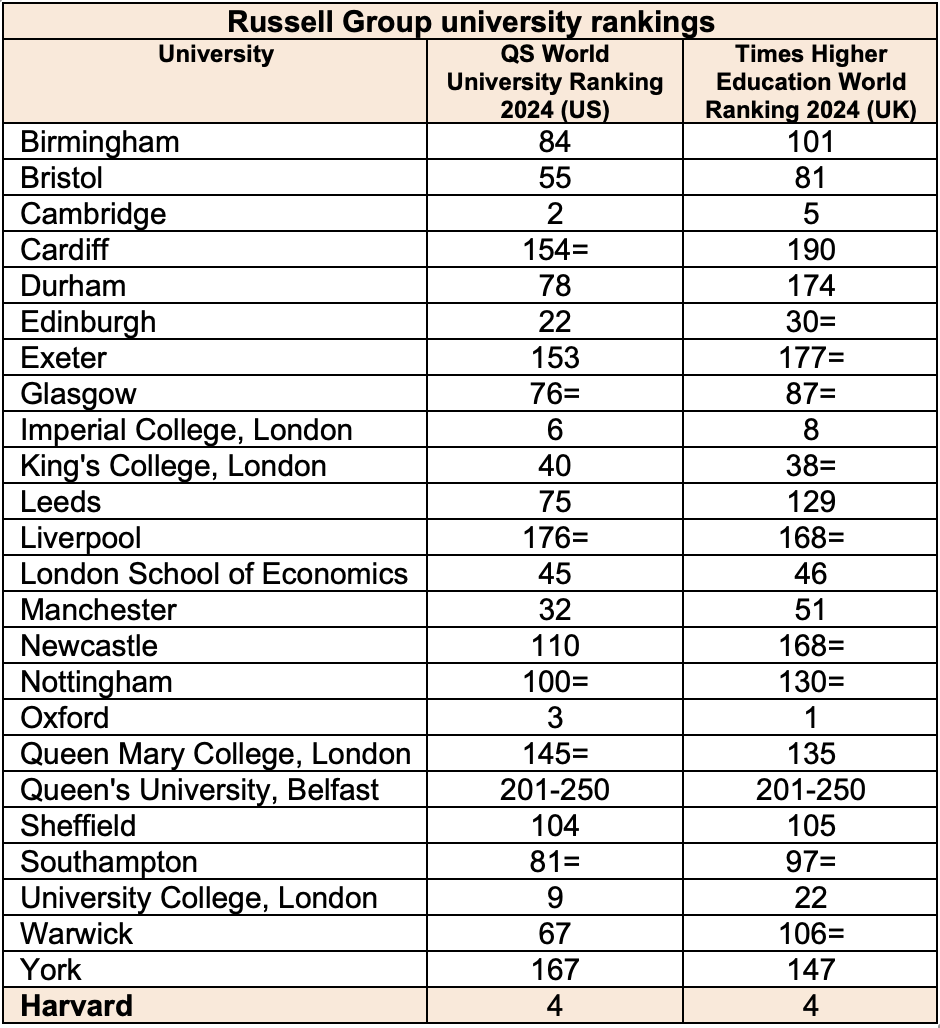

Which universities are ranked the highest for particular subjects?
QS World University Rankings also produces rankings by subject.
It is important to remember that the rankings are assessed by looking at both graduate and undergraduate programs at each university, so just because an institution is best in the world for a particular subject area doesn’t necessarily mean you can take a course in that subject as an undergraduate.
For example, in the tables below, Harvard is ranked No. 1 in the world for medicine, law, and business studies, as it has first class graduate schools in these three disciplines. But you cannot specialize in any of them at undergraduate level. This is because, in America, professional degrees such as medicine and law are taken at post-graduate level. The purpose of an undergraduate degree is to provide you with a broad education across the arts and sciences, so that by the time you graduate, you will have more than one career option open to you.
Nevertheless, it is still possible to take preparatory courses in medicine and law at Harvard College (the undergraduate school of Harvard University) to help you prepare for going on to medical school or law school after you graduate.
The universities which QS ranked the highest in each subject in 2023 (the latest year for which figures are available) are shown below, classified under five broad subject areas.
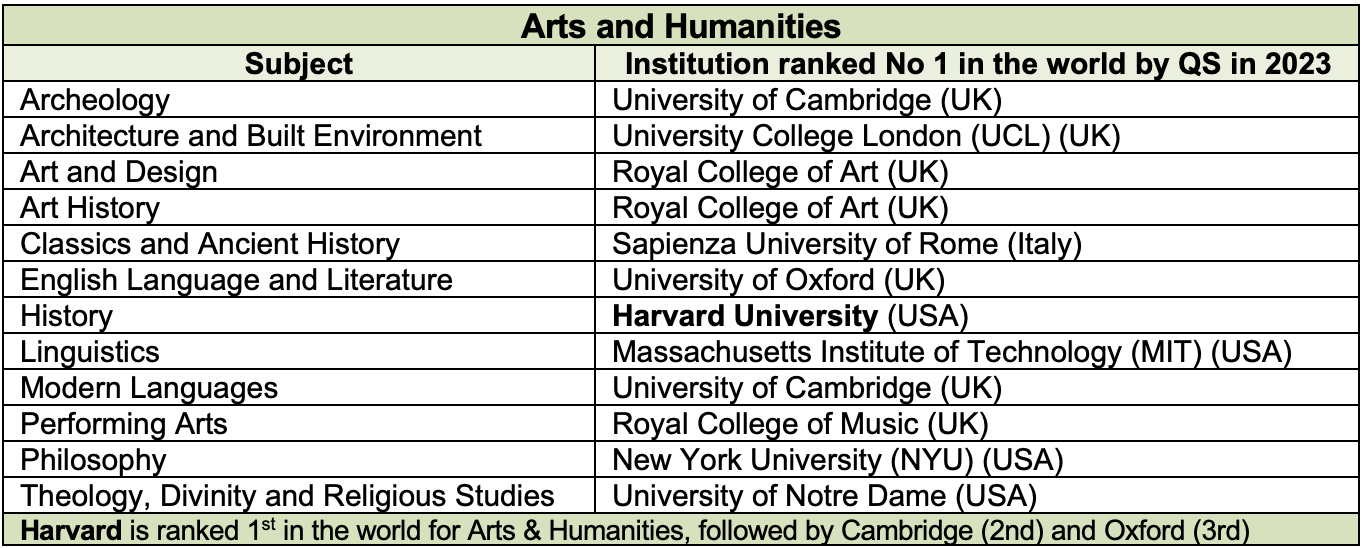

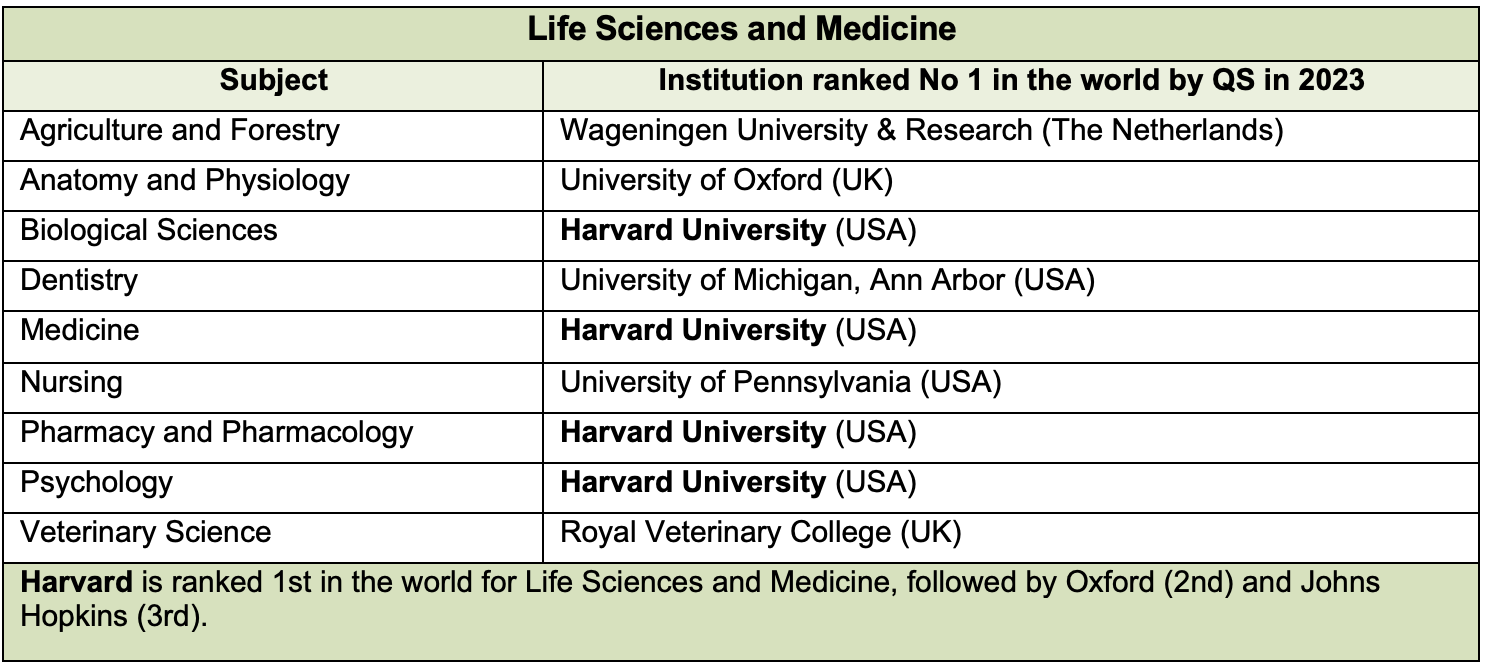
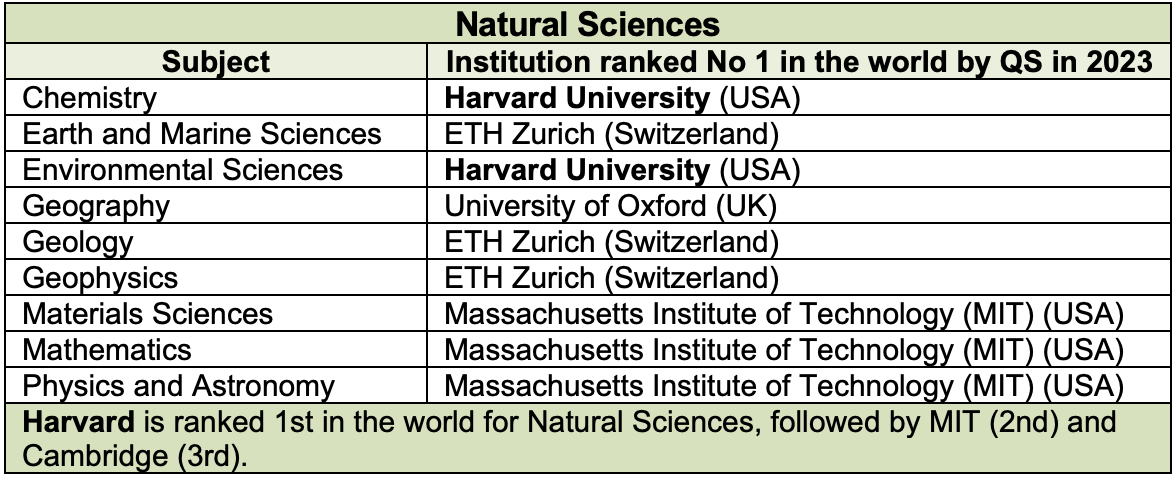
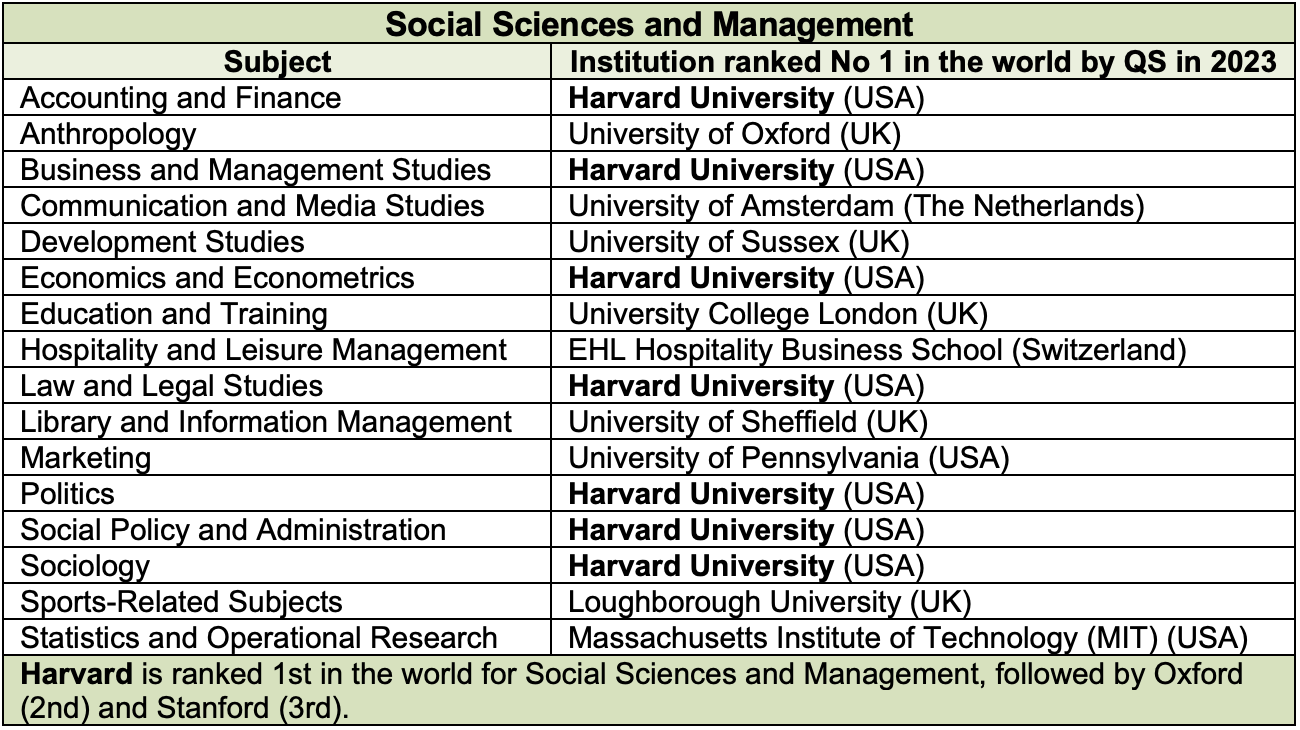
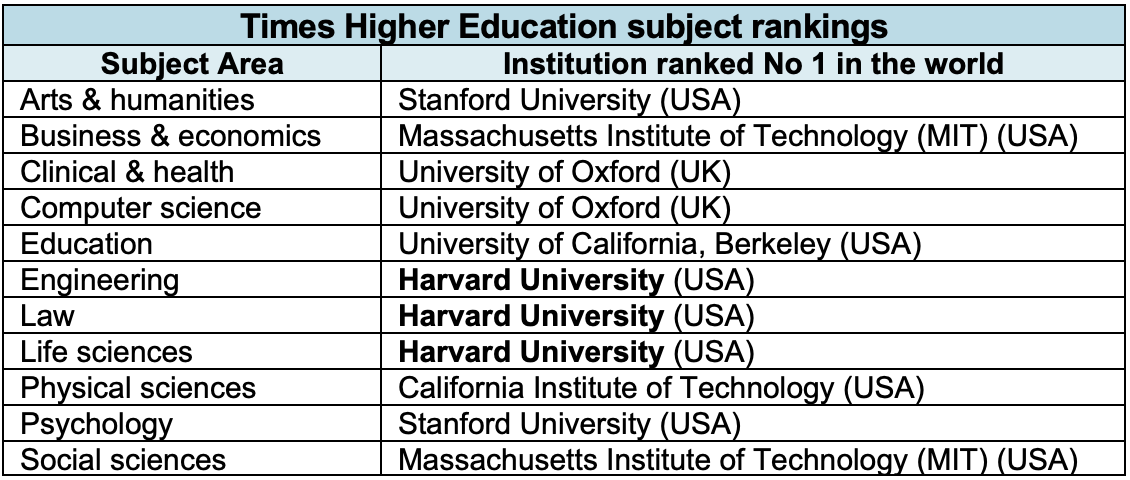
Times Higher Education (THE) also produces World University Rankings by subject, but classifies its data more broadly within 11 subject areas
Standardized tests - should I still take them?
The SAT and ACT – the two standardized tests that for many years have been an important component of US college applications – are now optional at many US colleges, and some do not require them at all. The number of test optional colleges has been steadily increasing over the last decade or so, but since the Covid pandemic, when many test centres were closed, the numbers have risen dramatically.
According to FairTest, over 2,000 four-year colleges will not require standardized test scores for those applying in the autumn of 2024. Of those, over 1,900 are test optional, and over 80 are test free. Many colleges have indicated they will extend their test optional policies into 2025, and Harvard has announced that it will extend its optional policy until 2026. For a full list of test optional and test free colleges, see the FairTest website.
Bearing in mind the large proportion of colleges that no longer require the tests, the question arises: should I take them at all? There is no clear answer to this question, as it will depend on your own academic profile as well as the practicalities of finding a test centre within a reasonable distance of your home town. If you cannot reach a test centre, then the decision is made for you. Also, if you have gained top grades in all your high school exams across all subjects, your academic credentials are already firmly established and you will gain little or no additional advantage by taking the tests. You would be better off spending the time developing your interests outside the classroom to enhance your extracurricular profile.
But if your high schools grades are slightly lower than you would like, there may be advantage in taking the tests if you are able to get a ‘good’ score – defined as being at the top end of the range of scores typically achieved by admitted applicants, as stated on the websites of the colleges on your shortlist. You may also find that practising for the tests improves your performance generally in maths, English comprehension and writing. So, by all means take the tests if you think you can improve your academic profile by doing so.
Researching US Colleges
If you have recently submitted your applications to US colleges by the Regular Action deadline in early January, we wish you every success. You will receive the results of your applications at the end of March, and will have until 1st May to accept or reject any offers that you receive.
If you are not applying until the autumn of 2024, one of your essential tasks during this academic year is to research the US college system so that by the summer, you will have identified a shortlist of colleges to which you would like to apply. Vicky Leung, Harvard College Class of 1991 and President of the Harvard Club of the UK, has written an article on Tips for Researching US Colleges, which includes comments on her own experiences when she was faced with the same task. The main criteria that may influence your college choices are:
- Admissions requirements – how do your achievements compare with typical students who gain admission?
- Courses – what is your most likely major, and your desired balance between optional and required courses?
- Cost – which colleges provide financial aid for international students
- Location – which part of the US do you wish to be based, and do you want to be in a city, suburban or rural environment?
- Size – do you prefer to be in a setting with just a few hundred students or a large campus with many thousands?
- Diversity – What is the proportion of women to men? International to American students? Black and minority ethnic students to white students?
- Extracurricular interests – do you have an extracurricular interest that you cannot possibly do without?
Click here to read the full article, which includes links to the main search engines you can use to find colleges which fit your particular preferences.
If you enjoyed reading this newsletter and wish to receive future newsletters, click here to subscribe.



